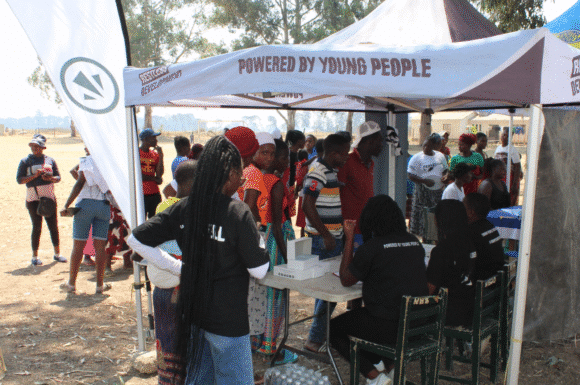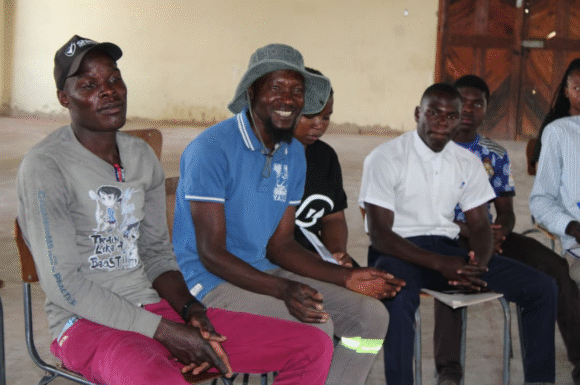In partnership with the Mercury Phoenix Trust, Restless Development has implemented a successful 12-month pilot phase of the Peak Youth Tackling HIV program, improving young people’s knowledge, confidence, and access to sexual and reproductive health and rights (SRHR) as well as HIV and AIDS services in Harare’s farming communities. During this first phase, 1,629 young people (988 female, 641 male) between the ages of 10 to 28 participated in community sessions that promoted positive behaviour change. The project also reached 355 people (223 female, 132 male) with HIV testing services through four community outreaches in partnership with the Zimbabwe National Family Planning Council (ZNFPC). One of the project participants stated that;
I really appreciate these services we are receiving, especially for me because I can’t remember when last I went to a clinic for a check, but here I have been coming to access HIV testing for the past 4 times, and it’s good as l don’t require anything, and my wife also does the same
-Nevermore Mukangamire, 23 years, Butler Farm

Insights from Baseline and Endline Surveys
To understand the project’s impact, Restless Development conducted both baseline and endline surveys during the pilot phase. The results demonstrated significant progress in young people’s knowledge, confidence, and behaviours around HIV and SRHR. At the endline survey:
- 60% of young people reported being able to negotiate for safer sex,
- 83% were confident in knowing their HIV status,
- 70% were comfortable disclosing their HIV status to their sexual partners.
Beyond individual impact, young people began taking collective action, participating in dialogues, shaping advocacy agendas, and speaking out against gender-based violence (GBV). Survey results revealed that 77% of young people now feel comfortable becoming “agents of social change” within their communities.

Looking Ahead
Insights from the pilot highlighted the urgent need to address the interconnectedness of GBV, HIV, and harmful norms of masculinity. In farming communities, traditional masculinity often prioritises male dominance, contributing to coercive sex, intimate partner violence, and women’s limited ability to negotiate safe sex. These entrenched norms also stigmatise men who seek HIV testing or treatment.
In this new phase, the project will adopt a gender-transformative approach that promotes positive masculinity, creating safe spaces for boys and young men to critically examine and redefine gender roles. Through dialogue, reflection, and skill-building, the project will encourage healthier and more equitable expressions of masculinity. It will empower men and boys to become active partners in HIV prevention, support reproductive health, and take responsibility for ending GBV.
